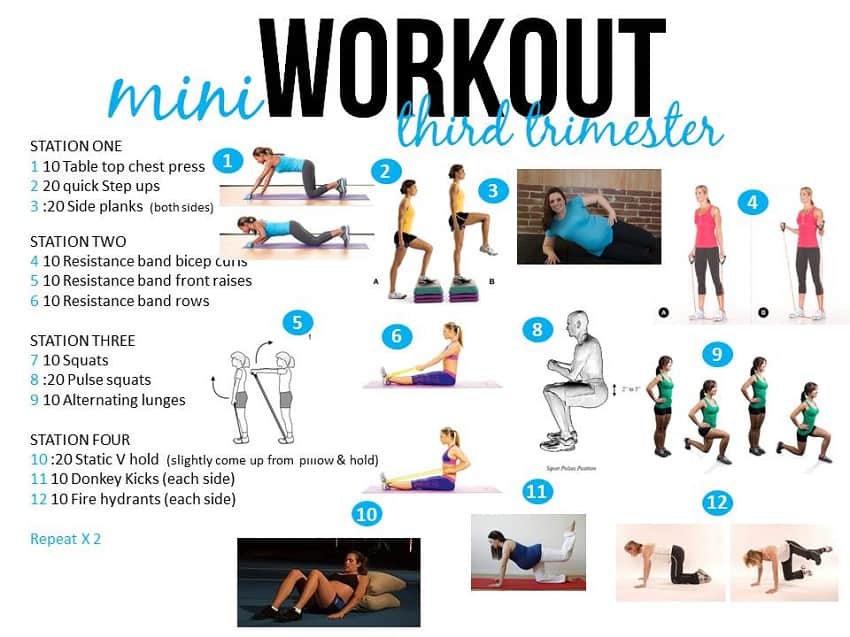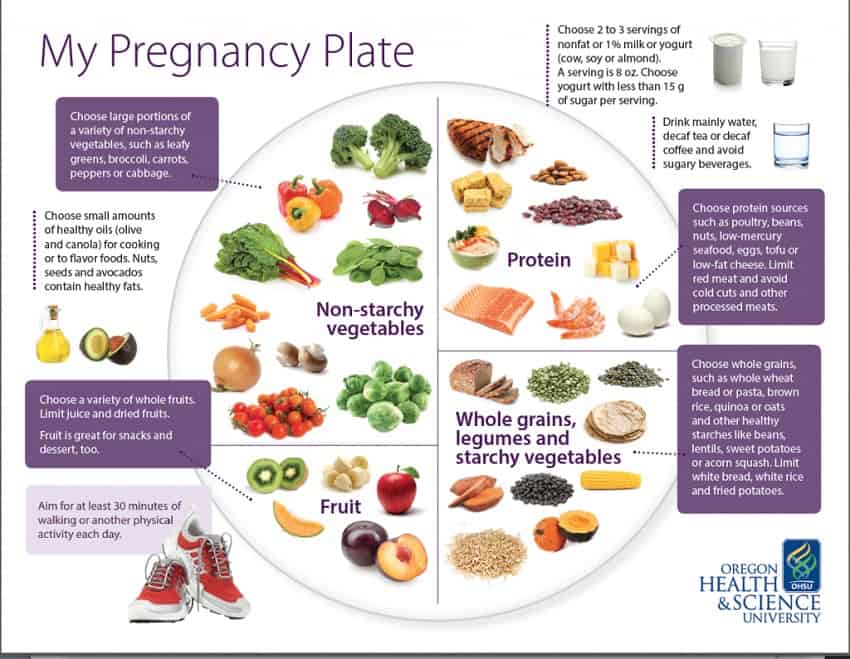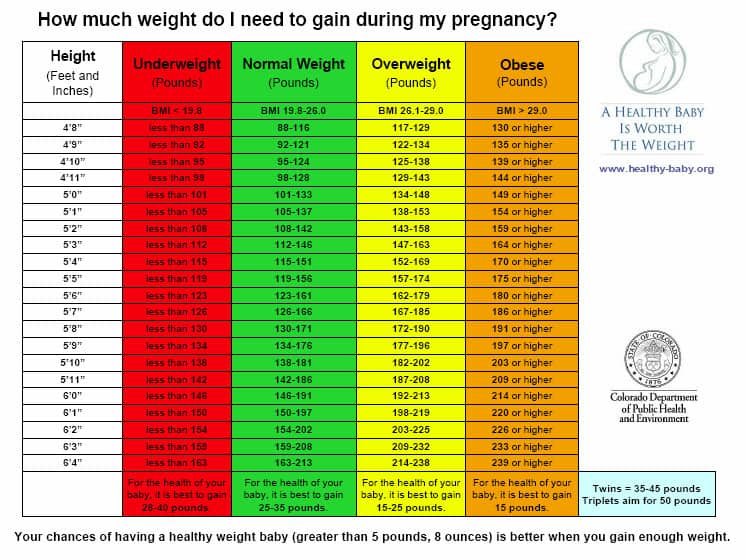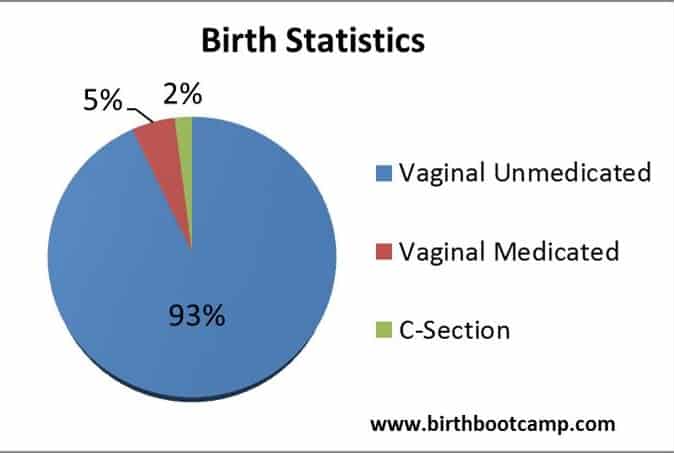
- Symptoms: Fatigue, cravings, breast tenderness
- Length: 40 weeks
- Workouts: Prenatal yoga, swimming, walking
- Classes: Lamaze, birthing, parent education
- Types of Birth: Vaginal, cesarean
- US Birthrate: 1.88 per woman
- Unsafe Medications: Aspirin, some cold medications
- Foods to Avoid: Sushi, unpasteurized dairy
- Recommended Weight Gain: 25-30 pounds
- Caffeine Limit: 200 mg daily
- Exercise: It’s Safe to Exercise During Pregnancy, Like Swimming
- Length: Pregnancy Lasts For 10 Lunar Months
- Care: Prenatal Care Aims to Identify and Prevent Problems
- Nutrition: Folic Acid Is Recommended as Part of a Pregnancy Diet
- Diet: There Are Restricted Foods When Pregnant
- Diet: Pregnant Women Should Limit Coffee and Wine
- Diet: There Is a Recommended Weight Gain for Pregnant Women
- Many Medications Are Unsafe During Pregnancy
- A Pregnancy Test Should Be Taken After a Missed Period
- Childbirth Can Be Natural or Medicated
- It’s Safe to Have Sex During Pregnancy
- A Woman’s Center of Gravity Shifts While Pregnant
- No Hot Tubs and Saunas During Pregnancy
- The Likelihood of Twins is 1 in 89 Births
It’s Safe to Exercise During Pregnancy, Like Swimming

According to pregnancy facts, it’s safe to exercise during pregnancy. In fact, it’s recommended that pregnant women exercise for 30 minutes, four days a week. Common pregnancy exercises include swimming, walking and prenatal yoga. Pregnant women should take care to hydrate and avoid becoming overheated.
Pregnancy Lasts For 10 Lunar Months
It takes about 40 weeks, or 10 lunar months, for a baby to reach full development. These 40 weeks are generally broken up into three trimesters. Women may experience different pregnancy symptoms in each of these trimesters. For example, most morning sickness occurs in the first trimester.
Prenatal Care Aims to Identify and Prevent Problems
The aim of prenatal care is to monitor the health of both the mother and fetus in order to identify and prevent problems. Certain milestones require testing in order to ensure a safe delivery. Pregnant women are tested for high blood pressure, gestational diabetes, and other conditions in order to ensure a safe, healthy delivery.
Folic Acid Is Recommended as Part of a Pregnancy Diet

It is recommended that pregnant women consume 400-800 micrograms of folic acid daily. Found in leafy greens, folic acid is a common nutrient in prenatal vitamins. Pregnancy facts show that getting sufficient iron, calcium and vitamin D is also important for a healthy pregnancy. Pregnant women should take a prenatal vitamin to ensure they are getting all the nutrients their bodies need.
There Are Restricted Foods When Pregnant
It is recommended that expectant mothers avoid raw fish and shellfish, including sushi and sashimi. Pregnancy facts show that seafood with a high mercury content should also be avoided. Another big no-no is unpasteurized dairy and juice products. All meat and eggs should be fully cooked to avoid potentially harmful bacteria.
Pregnant Women Should Limit Coffee and Wine
It is believed that 200 mg or less of caffeine per day is safe during pregnancy. That means a pregnant woman should be able to drink a 12-ounce cup of coffee a day. Most doctors will caution against any alcohol consumption, as alcohol has been shown to slow growth and lead to birth defects. Too much caffeine can also have negative consequences. Smoking is not only hazardous to everyone’s health, but it is especially detrimental to fetal development. Pregnant women should not smoke or even be around second-hand smoke.
There Is a Recommended Weight Gain for Pregnant Women

Pregnancy facts indicate that weight gain recommendations vary based on a woman’s starting weight. For women of a normal weight before pregnancy, it is recommended they gain 25-30 pounds while pregnant. Underweight women should gain between 28-40 pounds. Overweight women should gain around 15-25 pounds and obese women should gain around 11-20 pounds.
Many Medications Are Unsafe During Pregnancy
Pregnant women are generally excluded from drug trials, so the effects of many medications on pregnant women are unknown. Because of this, and the possibility for unreliable information online, the Center for Disease Control and Prevention recommends that pregnant women discuss any medications with their care providers.
A Pregnancy Test Should Be Taken After a Missed Period
Pregnancy facts tell us that at-home pregnancy tests are generally taken after a woman has missed a period. They can be purchased at most pharmacies and big-box stores over the counter. The pregnancy test will come with instructions on how to use it. In order to ensure the best results, you must follow the directions. Doctors will provide a more comprehensive urine test or an ultrasound to find a heartbeat.
Childbirth Can Be Natural or Medicated

For vaginal childbirth without complications, women have the option of choosing a natural or a medicated birth. For a natural birth, no drugs are administered. Women who choose this option have often read information, or taken classes, about different ways in which to manage the pain without the use of drugs. A medicated birth can include intravenous pain medications or an epidural. Women also have the option of birthing with a doctor or a midwife.
It’s Safe to Have Sex During Pregnancy

Research has shown that it is safe to have sex during pregnancy. A woman’s libido may change throughout her pregnancy, and different factors, such as morning sickness, may contribute to whether or not she feels like having sex.
A Woman’s Center of Gravity Shifts While Pregnant
It is recommended that pregnant women don’t cycle during their second and third trimesters because pregnancy shifts their center of gravity, increasing the possibility that they may lose their balance while riding their bikes.
No Hot Tubs and Saunas During Pregnancy
Hot Tubs and Saunas may be a great way to ease your aching muscles, but they are a pregnancy no-no. If a pregnant woman overheats, it is possible her fetus may develop a birth defect.
The Likelihood of Twins is 1 in 89 Births
Pregnancy facts tells us that twins are born once for every 89 births. Often, twins are not carried to full term and are delivered early. A multiple pregnancy comes with its own health concerns.
Pregnancy Facts – Facts about Pregnancy Summary
 A woman generally notices she is pregnant when she misses a period. She may then take an over-the-counter pregnancy test or go to her doctor for a blood test. Pregnant women may experience fatigue, nausea and breast tenderness. Pregnancy lasts for 40 weeks and is generally divided into trimesters. Pregnant women are restricted from eating certain foods and taking medications that may affect the fetus. It is not only safe for pregnant women to exercise, but is recommended by medical professionals. Pregnant women should take a prenatal vitamin that includes folic acid, reduce their caffeine intake and stop drinking alcohol.
A woman generally notices she is pregnant when she misses a period. She may then take an over-the-counter pregnancy test or go to her doctor for a blood test. Pregnant women may experience fatigue, nausea and breast tenderness. Pregnancy lasts for 40 weeks and is generally divided into trimesters. Pregnant women are restricted from eating certain foods and taking medications that may affect the fetus. It is not only safe for pregnant women to exercise, but is recommended by medical professionals. Pregnant women should take a prenatal vitamin that includes folic acid, reduce their caffeine intake and stop drinking alcohol.
Was this page helpful?
Our commitment to delivering trustworthy and engaging content is at the heart of what we do. Each fact on our site is contributed by real users like you, bringing a wealth of diverse insights and information. To ensure the highest standards of accuracy and reliability, our dedicated editors meticulously review each submission. This process guarantees that the facts we share are not only fascinating but also credible. Trust in our commitment to quality and authenticity as you explore and learn with us.


